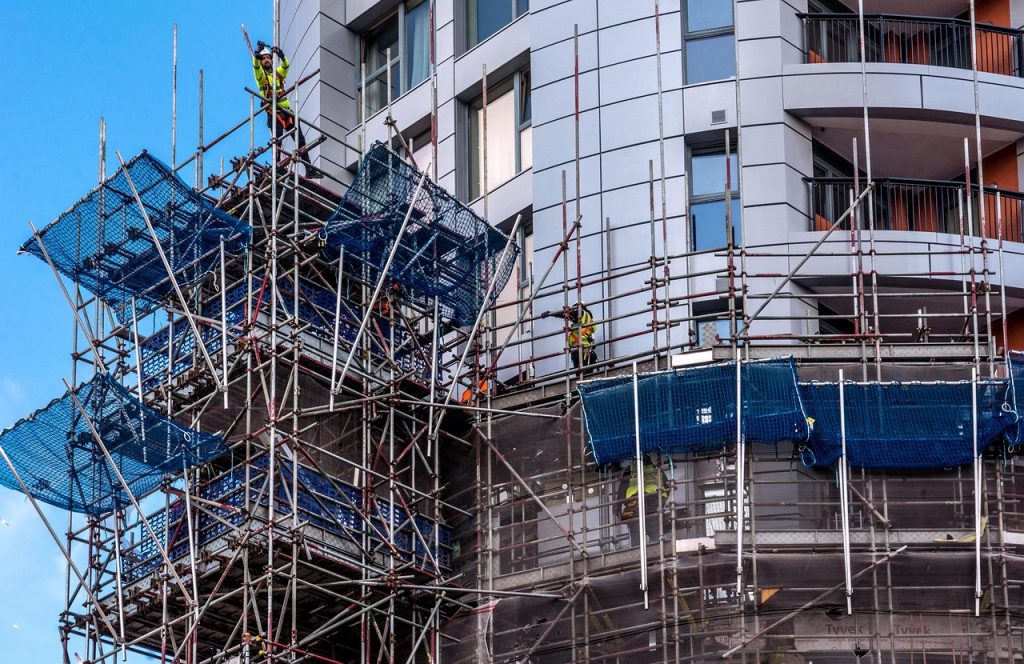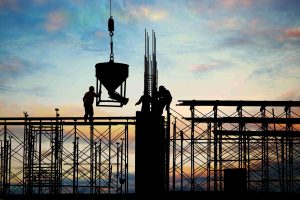When people think of plumbing, they often imagine a plumber fixing a leaky faucet or unclogging a drain. However, plumbing contractors play a far more significant role in the infrastructure of homes, businesses, and cities. In a world that increasingly prioritizes sustainability, smart technology, and water efficiency, plumbing contractors are at the forefront of innovation, shaping the way modern plumbing systems are designed and maintained. These professionals don’t just install pipes; they are responsible for creating the complex networks that ensure clean water reaches every household, industries can function efficiently, and wastewater is managed safely.
Whether it’s designing large-scale plumbing systems for skyscrapers, integrating smart plumbing technology in eco-friendly homes, or implementing water conservation techniques, plumbing contractors are essential to both urban and rural development. Understanding their role in construction is not just about knowing who to call for a new installation—it’s about recognizing the expertise that keeps our world running efficiently, hygienically, and sustainably.
What is a Plumbing Contractor? Understanding Their Role in Construction

Plumbing is one of the most essential components of any building, ensuring that clean water flows in and waste water flows out efficiently. Yet, many people overlook the critical role of plumbing contractors in the construction industry. Unlike a regular plumber who handles day-to-day repairs and minor installations, a plumbing contractor is responsible for large-scale plumbing projects, including designing, installing, and maintaining plumbing systems in residential, commercial, and industrial buildings. With modern advancements in plumbing technology, plumbing contractors are now at the forefront of sustainability, water conservation, and smart plumbing solutions. This article dives deep into the role of plumbing contractors, their responsibilities, qualifications, and how they contribute to the overall success of a construction project.
1. What is a Plumbing Contractor?
A plumbing contractor is a licensed professional or business entity that specializes in the planning, installation, and maintenance of plumbing systems in buildings. Their work goes beyond simple repairs, involving complex system layouts, compliance with regulations, and ensuring long-term functionality.
1.1 Difference Between a Plumber and a Plumbing Contractor
| Plumber | Plumbing Contractor |
| Handles minor repairs and maintenance | Works on large-scale plumbing systems |
| Fixes leaks, clogged drains, and minor pipe issues | Designs and installs complete plumbing systems in new constructions |
| Typically works alone or with a small team | Manages teams, obtains permits, and oversees large projects |
| May not require a contractor license | Must have a plumbing contractor license and insurance |
2. Responsibilities of a Plumbing Contractor
Plumbing contractors have a wide range of responsibilities depending on the type of project they are handling. These can be divided into three main categories:
2.1 Design and Planning
Before installation begins, plumbing contractors work closely with architects, engineers, and construction teams to design a comprehensive plumbing system. Their tasks include:
- Reading and interpreting blueprints
- Determining pipe sizes, materials, and layout
- Ensuring compliance with building codes and safety standards
- Coordinating with other contractors (electrical, HVAC, etc.)

2.2 Installation of Plumbing Systems
During the construction phase, plumbing contractors oversee the installation of essential plumbing components such as:
- Water supply systems
- Drainage and sewage systems
- Gas piping for heating and cooking
- Plumbing fixtures (sinks, toilets, showers, etc.)
- Irrigation systems
2.3 Maintenance and Repairs
After installation, plumbing contractors may offer ongoing maintenance services to ensure that the system remains functional. This includes:
- Diagnosing and fixing leaks and pipe blockages
- Replacing old or faulty plumbing components
- Conducting regular inspections to prevent potential issues
- Upgrading plumbing systems to meet new regulations or efficiency standards
Also read: 7 Best Construction Trends in Bali to Consider in 2025
3. Types of Plumbing Contractors
Plumbing contractors specialize in different areas depending on the type of projects they work on. The three primary types are:
3.1 Residential Plumbing Contractors
These contractors focus on plumbing systems in homes and apartments. Their work includes:
- Installing water supply and drainage systems in new houses
- Upgrading old plumbing to meet modern standards
- Repairing and replacing residential plumbing fixtures
3.2 Commercial Plumbing Contractors
Commercial projects require more complex plumbing systems due to high usage and stricter regulations. These contractors handle:
- Plumbing for office buildings, malls, hospitals, and schools
- Installation of industrial-grade pipes and fixtures
- Large-scale drainage and sewage systems
- Water supply systems for fire sprinklers and emergency water reserves
3.3 Industrial Plumbing Contractors
Industrial plumbing contractors work in manufacturing plants, refineries, and large factories, dealing with:
- High-pressure gas and water systems
- Wastewater treatment plants
- Cooling and heating systems for industrial processes
- Chemical waste disposal pipelines
4. How to Become a Plumbing Contractor
Becoming a plumbing contractor requires education, training, and licensing. Here’s a step-by-step guide:
4.1 Education and Apprenticeship
Most plumbing contractors start their careers as plumbers. The initial steps include:
- Earning a high school diploma or GED
- Completing a vocational plumbing program or apprenticeship (4-5 years)
- Learning plumbing codes, blueprint reading, and system design
Also read: 10 Best Interior Villa Designs in Bali That Redefine Luxury
4.2 Gaining Work Experience
After completing an apprenticeship, plumbers gain hands-on experience in residential, commercial, or industrial plumbing. Most states require 2-5 years of work experience before applying for a plumbing contractor’s license.
4.3 Obtaining a Plumbing Contractor License
To become a licensed plumbing contractor, individuals must:
- Pass a state plumbing contractor exam
- Submit proof of work experience
- Obtain liability insurance and business registration
- Stay updated with building codes and industry advancements
4.4 Continuing Education and Certification
Plumbing regulations and technology evolve over time. Many plumbing contractors pursue additional certifications in:
- Green plumbing and water conservation
- Gas pipe installation and repair
- Smart plumbing technology
- Solar water heating systems
5. Challenges Faced by Plumbing Contractors
Despite the rewarding career, plumbing contractors face several challenges:
- Strict Regulations: Plumbing codes and environmental laws frequently change, requiring constant updates.
- High Competition: The construction industry is competitive, and securing contracts can be challenging.
- Physical Demands: Plumbing work involves lifting heavy materials, working in tight spaces, and being exposed to hazardous conditions.
- Project Delays: Construction schedules can be unpredictable, affecting cash flow and profitability.
6. The Future of Plumbing Contracting
As the world moves toward sustainability and smart technology, plumbing contracting is evolving. Key trends shaping the industry include:
- Water-Efficient Plumbing Systems: Low-flow toilets, rainwater harvesting, and greywater recycling are becoming standard.
- Smart Plumbing Technology: IoT-enabled leak detectors, water flow sensors, and automated shut-off valves are improving efficiency.
- Eco-Friendly Materials: The industry is shifting to lead-free pipes, PEX piping, and biodegradable plumbing components.
- Advanced Leak Detection: AI-powered leak detection systems help prevent water wastage and structural damage.
Conclusion
Plumbing contractors play a crucial role in modern construction, ensuring that plumbing systems are efficient, safe, and environmentally friendly. Whether working on homes, businesses, or industrial facilities, their expertise is essential for maintaining water supply, sanitation, and energy efficiency. With the growing demand for smart and sustainable plumbing solutions, the role of plumbing contractors will continue to expand, making it an exciting and rewarding profession for those interested in the field.

Gracia is a co-owner of the company and a seasoned professional with over 20 years of experience in the hospitality industry. Her impressive background includes roles at major organizations such as Marriott, Accor, Banyan Tree, Sudamala, and Singapore Airlines.
With a profound understanding of luxury service standards and operational excellence, Gracia brings invaluable expertise to the business. Her strategic insight and dedication to quality have been instrumental in shaping the company’s growth, ensuring its continued reputation for delivering exceptional value and innovation in hospitality and commercial projects across the region.





